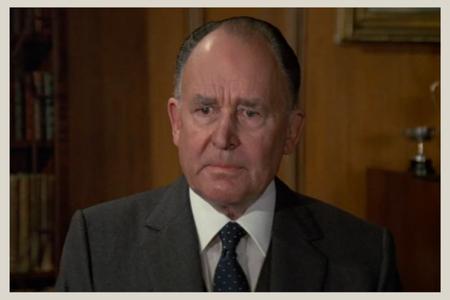Geoffrey Keen Biography

Geoffrey Keen was a prolific English actor known for his supporting roles in many films. He was born on 21 August 1916 in Wallingford, Berkshire, England. He attended Bristol Grammar School and made his stage debut in 1932 at the Little Repertory Theatre in Bristol.
After a year, he went to Cannes before being accepted to study at the London School of Economics. However, he had a change of heart and joined the Royal Academy of Dramatic Art, where he won the Bancroft Gold Medal after just one year.
In 1939, Geoffrey Keen joined the Royal Shakespeare Company, but with the outbreak of World War II, he enlisted in the Royal Army Medical Corps. While in the army, he managed to make an appearance in an Army instructional film for Carol Reed.
Keen’s first film role was uncredited in The New Lot in 1943. He went on to appear in several films, including Riders of the New Forest (1946), Odd Man Out (1947), The Fallen Idol (1948), and The Third Man (1949). He was a busy character actor, often portraying establishment figures such as government ministers, senior police officers, and military figures. He also played working-class roles in films such as Chance of a Lifetime (1950) and Millions Like Us (1943).
Geoffrey Keen continued to perform on stage, including Peter Hall’s 1957 production of Cymbeline and as a sadistic Turkish General in Terence Rattigan’s controversial play Ross (1960). He was also a lead actor in BBC TV’s long-running drama about the oil industry, The Troubleshooters, between 1965 and 1972.
Despite a huge filmography, Geoffrey Keen was best known for his portrayal as Minister of Defence Sir Frederick Gray in six different James Bond films. Beginning in 1977 film The Spy Who Loved Me, he went on to play the role in Moonraker, For Your Eyes Only, Octopussy, A View to a Kill, and The Living Daylights, his final ever casting in any film role.
Throughout his career, Geoffrey Keen appeared in over 100 films before retiring in 1991. He passed away on 3 November 2005, leaving behind a rich legacy in film and theatre.



